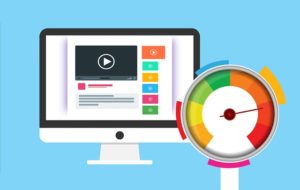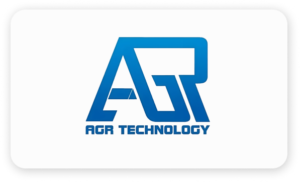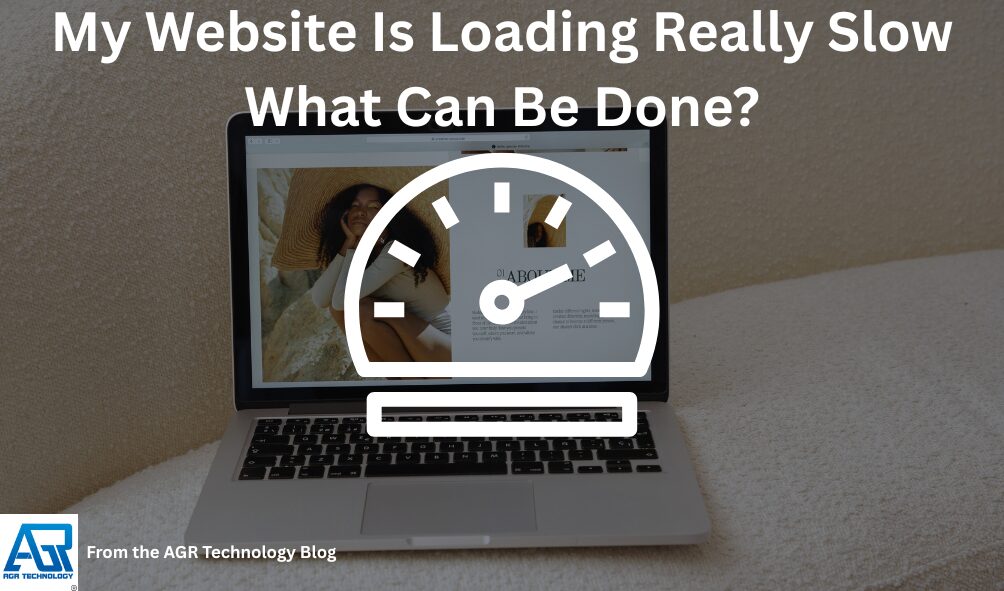If you’re reading this, chances are your website feels sluggish — and you’re not sure why. Maybe customers are complaining. Maybe Google PageSpeed is flashing red warnings. Or maybe your bounce rate is climbing and sales are dropping, but you’re not sure where to start.
A slow-loading website is more than an annoyance — it’s a silent killer of sales, SEO, trust, and performance.
In this guide, we’ll explore:
-
The real reasons your website might be slow
-
How this impacts your business (in plain terms)
-
Practical, actionable tips to fix the problem
-
When to fix it yourself vs. when to hire pros
-
And answers to the most common questions
Let’s dig in.
Want help to take care of your website performance and other web needs? Contact AGR Technology to see how we can help
🚨 Why Website Speed Matters (More Than Ever)

First — let’s define “slow.” On the web, speed is measured in seconds. A fast-loading page should appear in under 2.5 seconds, ideally under 1.5 on mobile. Anything slower and you’re losing people.
Here’s what happens when your site is slow:
| Consequence | Impact |
|---|---|
| Visitors bounce | They leave before your content even loads |
| Lower Google rankings | Speed is now a Core Web Vital for SEO |
| Drop in conversions | Users get frustrated and don’t complete actions |
| Damaged credibility | Feels outdated, untrustworthy, unprofessional |
| Increased support load | Customers report issues you didn’t know existed |
| Poor mobile experience | Especially painful for mobile-first users (which is most) |
🧠 Common Causes of a Slow Website
Here are the most common — and fixable — reasons your site may be underperforming:
1. Bloated Code and Unminified Assets
Many websites use unnecessary or outdated code, large CSS and JS files, or poorly implemented page builders.
-
Example: Page builders like WPBakery or Elementor can leave behind massive code bloat if not optimised.
-
Fix: Minify and combine CSS/JS files. Remove unused styles/scripts. Use clean, lean code.
2. Unoptimised Images
One of the biggest speed killers is uploading raw, full-resolution images directly to your site.
-
Example: A 5MB homepage hero image can delay load time by several seconds.
-
Fix: Use modern formats like WebP or AVIF. Compress images before uploading. Implement lazy loading.
3. Underpowered or Shared Hosting
Budget hosting often means you’re sharing resources with hundreds of other sites, causing slowdowns during traffic spikes.
-
Fix: Move to a performance hosting provider (preferably with SSD/NVMe storage, LiteSpeed servers, and a reliable uptime record).
4. Too Many Plugins or Extensions
In CMSs like WordPress, too many active plugins — or even one poorly coded one — can cripple performance.
-
Fix: Audit and remove unused plugins. Choose high-quality, lightweight alternatives. Always keep plugins updated.
5. No Caching or CDN
A lack of proper caching means your server rebuilds the same page for every user request. A CDN helps deliver content from the nearest server to the user.
-
Fix: Set up caching (server-side + browser). Use a Content Delivery Network like Cloudflare to speed up global delivery.
6. Too Many HTTP Requests
Every element on a page (images, scripts, fonts) makes a separate request. Too many = longer load times.
-
Fix: Reduce the number of elements on each page. Use CSS sprites where applicable. Consolidate scripts.
7. Third-Party Scripts Slowing You Down
Embedded chat widgets, analytics tools, and external ads can load slowly or cause blocking.
-
Fix: Load third-party scripts asynchronously. Remove unnecessary tracking tools. Use tag managers to control load order such as Google Tag Manager to consolidate scripts into one tag as opposed to loading all tags in the header directly.
🔍 How to Test Website Speed (And What Tools to Use)

Before you fix anything, you need to measure what’s actually going on. Here are trusted tools you can use to test your site’s performance:
-
Gives Core Web Vitals scores
-
Breaks down opportunities for improvement
-
Provides both mobile and desktop results
✅ GTmetrix
-
Offers detailed breakdowns of file sizes, requests, and load order
-
Great waterfall chart analysis
-
Easy-to-understand performance grades
-
Visual load timeline
Pro Tip: Don’t test your homepage only — check product pages, blog posts, and checkout flows.
⚙️ DIY Fixes vs. Professional Help — When to Call in Experts
You might be able to fix some speed issues yourself — but not always. Here’s how to know:
Tackle It Yourself If:
-
You understand basic web tools and plugins
-
You’re using a CMS like WordPress and feel comfortable experimenting
-
The issues are small (image size, plugin count, cache settings)
Hire Experts If:
-
Your site is still slow after basic optimisation
-
You run a business-critical site (eCommerce, booking system, membership)
-
You don’t want to risk breaking anything
-
You need a long-term, scalable solution that covers security, uptime, and performance
💼 Why Businesses Choose AGR Technology for Website Speed Optimisation

When Australian businesses want their website to not just load faster but work better, many turn to AGR Technology.
Why?
Because AGR Technology doesn’t just throw a plugin at the problem. We offer a comprehensive, done-for-you solution, including:
✅ Full site performance audits
✅ Hosting infrastructure upgrades
✅ Custom code clean-up and plugin optimisation
✅ Image compression and lazy loading setup
✅ CDN configuration (e.g. Cloudflare)
✅ Security, maintenance, and uptime monitoring
Whether you’re running a WordPress site, Joomla, or a custom-built platform, AGR Technology has the tools and experience to get your website loading fast, ranking better, and converting more.
“We don’t just make your website faster. We make it work for your business.” — AGR Technology
✅ Final Tips to Keep Your Website Fast Over Time
-
Regularly audit your site with speed tools
-
Update your plugins, themes, and CMS core
-
Avoid unnecessary features, scripts, or fonts
-
Use lightweight themes and frameworks
-
Invest in a reliable host (not just the cheapest option)
Remember: Speed isn’t a one-time fix — it’s an ongoing process. And the payoff? Better rankings, more conversions, and a better user experience.
Want help to take care of your website performance and other web needs? Contact AGR Technology to see how we can help
📚 FAQs: Website Speed & Optimisation
1. How fast should my website load?
Ideally under 2.5 seconds — especially on mobile. Faster is better. Google recommends aiming for under 1 second for key interactions.
2. Does website speed affect SEO?
Yes. Speed is a Core Web Vital, and it’s part of Google’s ranking algorithm. Slow pages may rank lower or be removed from top results entirely.
3. What is TTFB (Time to First Byte)?
It measures how quickly your server responds. A high TTFB usually points to server-side delays, slow databases, or poor hosting.
4. Is a fast homepage enough?
No. Your entire site needs to be optimised — especially product pages, checkout flows, and landing pages. Google and users care about all pages.
5. Can plugins speed up my WordPress site?
Yes, but use them wisely. Tools like WP Rocket, LiteSpeed Cache, and Smush can help — but too many plugins can slow things down.
6. Is it worth switching hosting providers?
Absolutely — especially if you’re on basic shared hosting. Speed-focused hosts can reduce load times by 30–70%.
7. Can AGR Technology help with website speed issues?
Yes. AGR Technology offers done-for-you performance tuning, including audits, hosting upgrades, image optimisation, and ongoing support.
8. How much does it cost to fix a slow website?
It depends. Minor fixes can be handled quickly; full rebuilds or server migrations may require a custom quote. AGR Technology offers free consultations to assess your needs.
9. What’s a CDN and do I need one?
A Content Delivery Network (CDN) stores copies of your site on servers worldwide, so it loads faster for users wherever they are. Yes — you probably need one.
10. How often should I check my site’s speed?
At least monthly, or after major updates. Speed can degrade over time as new content, images, and plugins are added.
Related content / resources:
Is Your Website Really Old and Not Mobile Friendly? Here’s Why You Need an Upgrade Now
I Use Multiple Services & Software And Looking To Integrate Them Together To Streamline My Business?

Alessio Rigoli is the founder of AGR Technology and got his start working in the IT space originally in Education and then in the private sector helping businesses in various industries. Alessio maintains the blog and is interested in a number of different topics emerging and current such as Digital marketing, Software development, Cryptocurrency/Blockchain, Cyber security, Linux and more.
Alessio Rigoli, AGR Technology
![logo-new-23[1] logo-new-23[1]](https://agrtech.com.au/wp-content/uploads/elementor/thumbs/logo-new-231-qad2sqbr9f0wlvza81xod18hkirbk9apc0elfhpco4.png)
